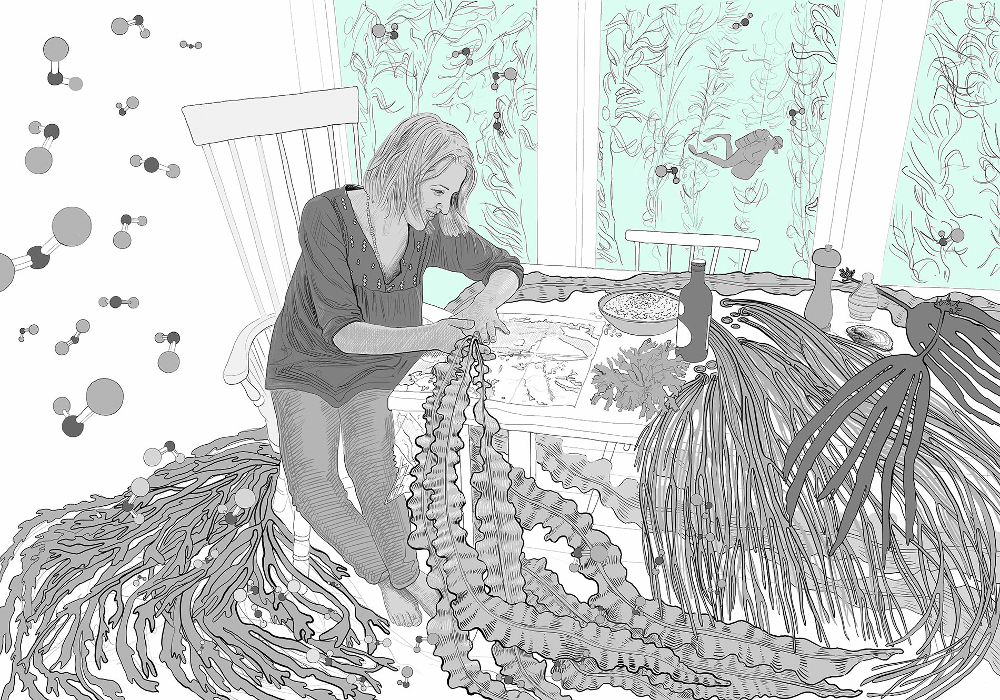Sarah Gittins: Seaweed could be cast as a heroine in a story about the ecosystem of Ullapool in relation to climate change. It has been found to be very effective in absorbing carbon, and if it is allowed to grow in abundance it could play an important role in mitigating the effects of climate change and ocean acidification. Seaweed is also a highly nutritious and delicious food.
Ailsa McLellan, founder of the hand-harvested seaweed company 58°N, introduced me to the wonderful world of seaweeds. In this drawing, she is showing me the location of one of her favourite harvesting spots, surrounded by some of the different seaweeds she collects. On the table is a traditional offering of oatmeal and beer for the seaweed god – Shony. Outside the window, a scallop diver swims through a kelp forest.
Ailsa told me: ‘The importance of our coastal kelp forests cannot be overstated. They are the bottom of the food chain and support a huge variety of life — invertebrates, fish, birds, mammals and fishermen [and women] included.
‘Kelp protects our coasts from erosion and is a significant carbon sink. Given the threat of climate change, our kelp beds should be revered for this fact alone. Kelp dredging is currently not allowed in Scotland. An alginate company [which extracts a food ingredient from seaweed] sought to change this in 2018 by applying for a licence to dredge for kelp. A vote in the Scottish parliament on 21 November 2018 upheld the original crown estate rules, meaning that no seaweed can be harvested in such a way that destroys individual plants regardless of the size of the harvester’s operation.
‘Marine Scotand are currently organising a “harvest review” looking at the potential to dredge for our kelp. At the moment they are putting together a steering group. It is vital that the actions of this steering group are transparent and that we are aware of what each member stands to gain if dredging is to go ahead, either from the alginate side, or as scientists who would gain from monitoring work.’
Sea Tangle by Sarah Gittins
Topics: Culture



